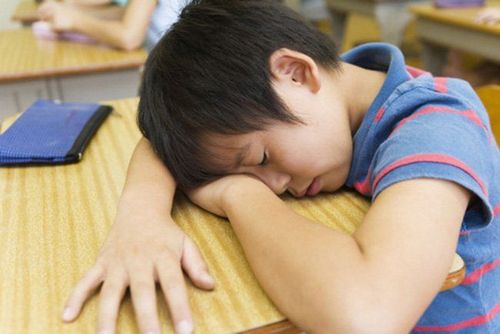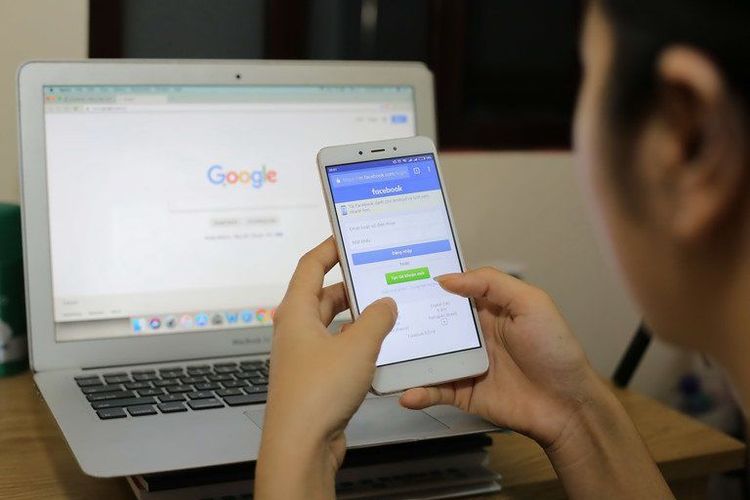This is an automatically translated article.
The article is professionally consulted with Master, Doctor Nguyen Minh Son - Interventional Cardiologist - Department of Medical Examination & Internal Medicine - Vinmec Nha Trang International General Hospital.Nearly half of children in the United States don't get the recommended 9 hours of sleep, a new study finds. Experts say children's lack of sleep can affect their ability to concentrate, learn, and have long-term health effects. Learn the harms when children do not get enough sleep and methods to help parents gradually improve their children's sleep habits through the article below.
1. Overview of sleep deprivation in children
There is a reality that many parents should recognize: children today often do not get enough sleep or lack quality sleep. Because school starts early, the brain is easily distracted by the impact of screens and external pressures, causing more than 52% of children aged 6 to 17 to sleep less than 9 hours per night according to recommendations. of a pediatrician.According to a new study presented at the American Academy of Pediatrics (AAP) 2019 National Convention and Exhibition in New Orleans, sleep deprivation affects children's development.
Research data shows that, in a group of children of the same age, 48% of children who get enough sleep will have a 44% higher ability to be curious, to absorb new information and skills. These children were also 33% more likely to complete their homework and show a 28% higher interest in learning at school.
What factors lead to children sleeping less?
Risk factors for poor sleep include:
Unstable living conditions. Lack of care, reminders of caregivers about the importance of getting enough sleep. Excessive use of digital media (phone, computer, television...). Having adverse family life situations and mental health problems. Thus, it is not only adults who are struggling with sleep problems, today children are also susceptible to external factors that lead to mild to severe sleep disorders.

Trẻ ngủ không đủ giấc sẽ ảnh hưởng đến sự phát triển
2. Health effects when children lack sleep
Experts agree that children who don't get enough sleep are not only clearly affected in their ability to concentrate and academic performance, but also have potential long-term health risks.Firstly, if children sleep less combined with more exposure to germs in the environment, they are more susceptible to diseases (obesity, high blood pressure, heart disease, stroke, irregular heartbeat and disease). diabetes, infectious diseases, etc.). The reason is because sleep is not only sleep, but also a nightly rest mode that the body needs to improve resistance, regulate metabolic activity and protect the body from external agents. Second, sleep is closely related to the physical development of children. Children and adolescents are still at the stage of developing frontal lobes and decision-making skills. But when the state of insufficient sleep, lack of sleep becomes more and more severe, the frontal lobe is the most weakened organ. As a result, mental functions are reduced similar to those in drunken people, delayed decision-making processes, impaired attention and memory. Third, children who sleep little for long periods of time are more likely to have behavioral problems, be more reckless, have anxiety, and are more likely to have mood problems. Many sleep-deprived children are prone to nightmares, sleepwalking, and bedwetting while they sleep. But of greatest concern is the link between too little sleep and depression, low morale and self-harm in teenagers.
Mental health has a great influence on a child's behavior. Research has shown that high school students who sleep less than 6 hours are three times more likely to experience depression, thoughts of suicide or self-harm than their peers who get eight hours of sleep.

Trẻ ngủ không đủ giấc ảnh hưởng tới thành tích học tập
3. The influence of social networks on sleep health
While it's well known that mobile screen time can disrupt children's sleep, social media causes greater harm by directly impacting the brain's reward centers.We live in a world where all information can be found online and it seems that everything is more or less dominated by social networks. Children also join this trend when not only using content but can also create it through simple operations.
As for the brain, when we are viewing or creating something on social media, the brain releases hormones like norepinephrine and dopamine that stimulate the "wake centers" of the brain, making it even harder for us. go to sleep more.
In addition, social media also signals the adrenal glands to release adrenaline and stress hormone, Cortisol , when a person is constantly scrolling and viewing social media.
In general, if adrenaline and cortisol levels keep skyrocketing, no matter how hard a child tries to fall asleep, getting quality sleep is not easy.

Mạng xã hội là một trong các nguyên nhân khiến trẻ ngủ không đủ giấc
4. Ways to help children sleep better
If you want to help your child sleep better, start with the lifestyle and activities in the family. Parents will play an important role in caring for and educating their children to understand the importance of sleep and follow certain rules for quality sleep.Here are some suggested steps for parents to help their children sleep better:
Talk about the importance and benefits of getting enough sleep regularly with young children. Go to bed early as a punishment or stay up late as a reward. When it comes to going to bed, speak in a positive way. Instead of saying "have to go to bed," say "it's time for you to rest." Find ways to optimize your baby's sleeping environment. For example, a dark, quiet and comfortable room, with a soft pillow and mattress, will help children fall asleep more easily. Children under the age of 13 should not be exposed to social media and electronic devices too often. It is recommended to limit the time children use mobile devices and the last time they use them should be at least 1 hour before bedtime. Parents should not let children's bedrooms have television screens or other electronic devices. The above are methods to limit children's lack of sleep, sleep deprivation and affecting mental and physical health. Hopefully, parents will create a synchronous lifestyle for the family so that each member can rest and get enough sleep after stressful working and studying hours.
Psychological Clinic - Vinmec Times City International General Hospital has the function of examining, consulting and outpatient treatment of psychological and mental health problems. With modern equipment and a team of highly specialized doctors, the Psychology clinic - Vinmec Times City International General Hospital is capable of deploying psychological tests and intensive psychotherapy to serve the public. medical examination and treatment.
With enthusiasm and love for the profession, the team of doctors working at the clinic gives customers the best services with the highest service quality.
Psychology Clinic is currently cooperating with leading professors and experts of Hanoi Medical University, frontline hospitals in the country and internationally to diagnose and treat in order to bring effective medical examination and treatment. best cure.
Please dial HOTLINE for more information or register for an appointment HERE. Download MyVinmec app to make appointments faster and to manage your bookings easily.
Reference source: Healthline












